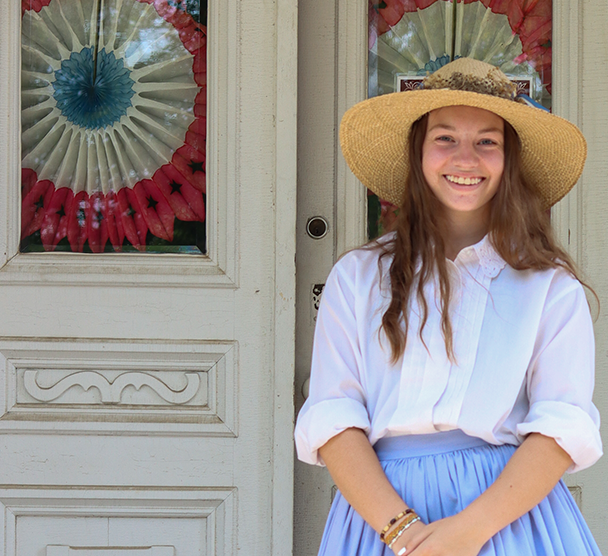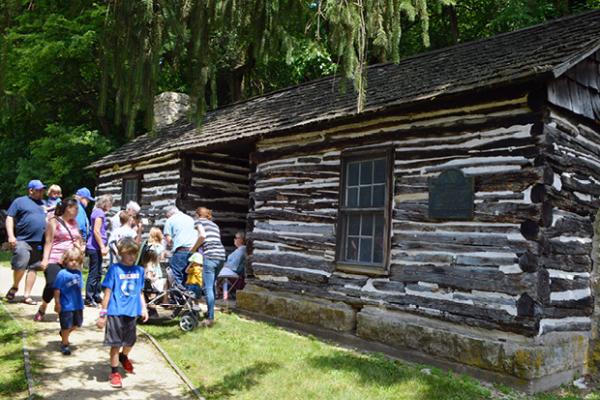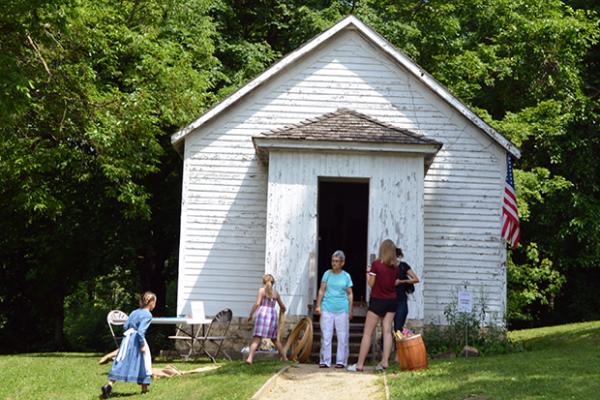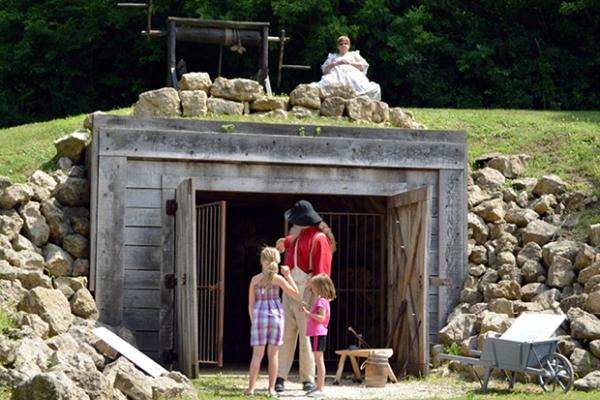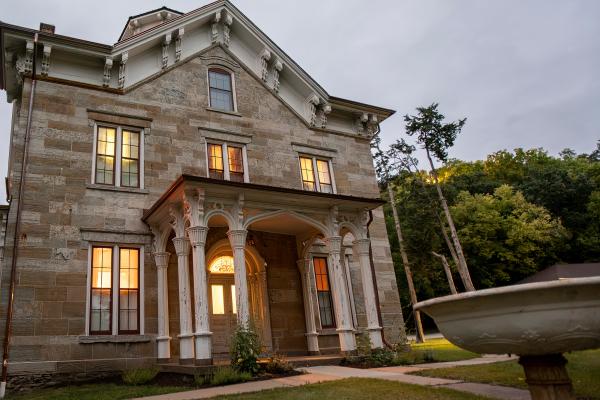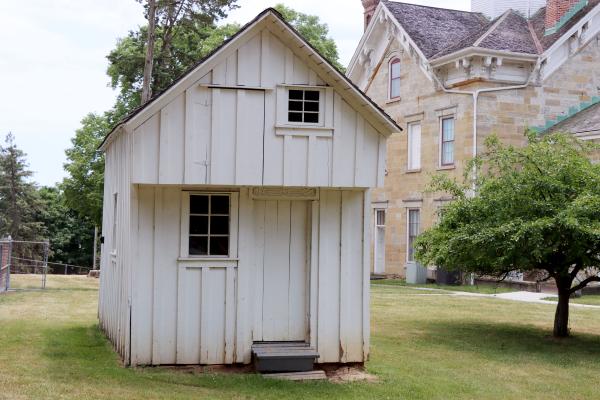Located in the Eagle Point Park neighborhood of Dubuque, the Mathias Ham Historic Site is home to several significant structures of Iowa history.
Visitors can see glimpses of the industries that made Dubuque, like the lead mining badger holes or Iowa ‘firsts’ like the Arriandeaux Cabin which was the first permanent log cabin during white settlement.
Other structures include the Humke Schoolhouse, a one-room school relocated from Centralia that symbolizes the efforts of educating a rural population. Bringing all these narratives together is the namesake and centerpiece of the site, the Italianate mansion of a founding leader of Dubuque, Mathias Ham.
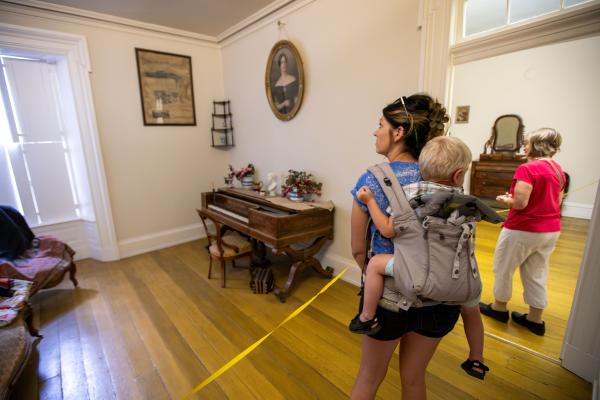
Plan Your Visit
Getting ready to visit the site? Here is everything you need to know before you arrive and to enjoy your day.
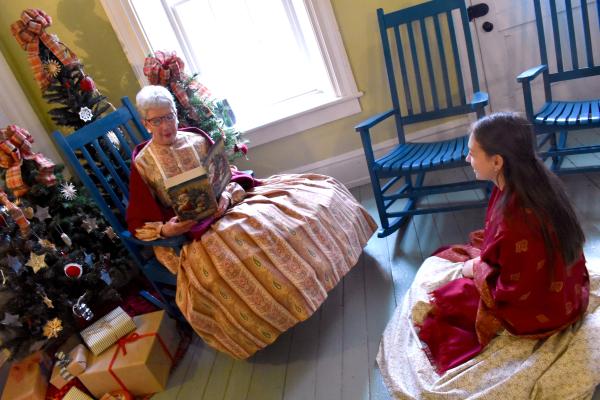
Events & Programs
Ready to party like it’s 1839? Check out our upcoming events and programs that are happening at the house.
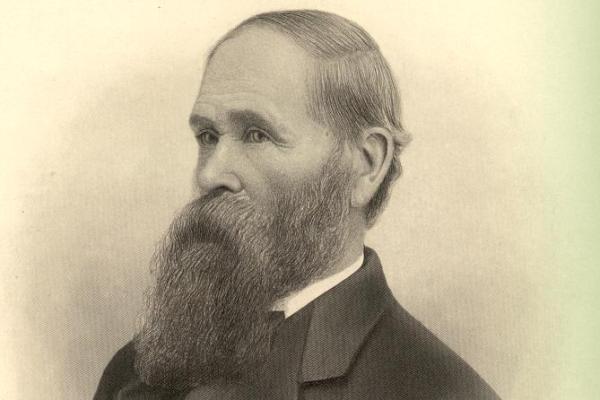
About Mathias Ham
Ever wondered about the origins of the estate and Mathias Ham himself? Read about its rich history and then come and see the site for yourself!
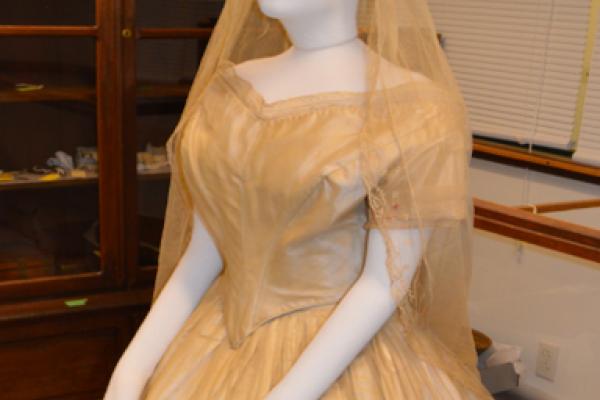
DeGriselles Dress Gets a Facelift
The DeGriselle dress is currently undergoing conservation thanks to the generosity of our donor. Read about the history of the dress and see what goes into conserving a gown!


